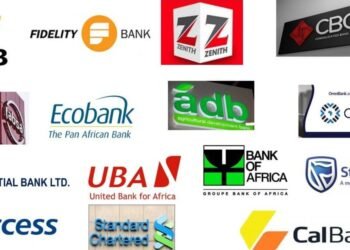Ghana is in the final stages of becoming the 1st African country to issue the Forest Law Enforcement Governance and Trade (FLEGT) license to cover its timber and wood products traded on the European Market.
The feat was achieved during the 11th Joint Monitoring and Review Mechanism meeting held between Ghana and the EU in Brussels.
Minister for Lands and Natural Resources, Samuel A. Jinapor, led a high-level Ghanaian delegation made up of representatives from the Ministry of Lands and Natural Resources, the Chairman of the Parliamentary Select Committee on Lands and Forest and key stakeholder groups.
The group also included the Ghanaian public authorities in charge of forest administration, private sector and civil society, at the 11th Joint Monitoring and Review Mechanism (JMRM) meeting in Brussels which sought to advance on the final procedural steps towards the issuance of FLEGT licenses.
Mr Jinapor stated that Ghana has seen significant improvements in forest governance with the implementation and operation of the timber legality assurance system.
He indicated that the pending issuance of FLEGT licenses to the EU market and licenses to other international destinations will be undergirded with the same legality standards.
Parties involved also agreed on the Joint Action Plan towards FLEGT licensing, and raised outstanding procedural issues to be addressed before FLEGT licenses can be issued. The FLEGT licenses attest to the legality of Ghana’s timber and will facilitate trade in timber and timber related products for both exporters and importers.
According to Koen Doens, Director General at the European Commission’s Directorate General for International Partnerships (INTPA), over the years, there has been a remarkable dedication to sustainable forest management and the combatting of illegal logging.
He noted that the dedication of Ghana’s government and its forestry sector, alongside the support and cooperation of European partners, has brought them to the cusp of FLEGT licensing.
“This achievement underscores the power of international cooperation in addressing critical global challenges such as deforestation and illegal logging.
“We look forward to the positive impact that FLEGT licensing will have on Ghana’s timber industry and the broader environment, demonstrating how partnerships and persistent efforts can lead to meaningful change.”
Koen Doens
Meanwhile, Ghana has undertaken major legislative reforms in its forestry sector to enhance forest governance which supports the objectives of the Voluntary Partnership Agreements (VPA) and Ghana’s commitment to sustainable forest management and the fight against climate change.
In addition to these advances, Ghana is also addressing the trade of illegal timber in both domestic and regional markets. In this regard, Ghana is rolling out a new system for tracking timber on the domestic market that involves both suppliers and traders and requires proof of legality through the chain of custody.
Addressing illegal timber trade
Through the VPA, Ghana is controlling illegal timber trade, modernizing timber operations and ensuring forestry brings employment in the formal economy and social benefits such as payments to communities through Social Responsibility Agreements.
For the EU, the VPA contributes to achieving the goals of the EU’s FLEGT Action Plan which aims to improve forest governance and combat illegal logging.
This will be the next logical step in consolidating the gains towards sustainable forest management and forest governance as a whole. Ghana’s commitment to the VPA, as well as halting and reversing forest loss and land degradation by 2030 remains absolute.
Fourteen years after the start of the implementation of the Agreement, and after several significant technical, legal and governance developments in Ghana’s forestry sector, Parties have agreed that they are ready for FLEGT licensing.
This places Ghana as the 2nd country in the world after Indonesia to begin the trade in legally certified wood and wood products with the EU under the Forest Law Enforcement Governance and Trade (FLEGT) mechanism.
Ghana’s Timber Legality Assurance System when it becomes fully operational in 2024, will mark over a decade of institutional and regulatory reforms in the trade in legal timber. It will also be evidence of the Government’s commitments at responsible management of the nation’s forest resources.
In November 2009, Ghana became the first timber-producing country to sign a Voluntary Partnership Agreement (hereinafter referred to as VPA or Agreement) with European Union (EU). The Agreement entered into force on 1 December 2009.
READ ALSO: Christian Council of Ghana Demands Investigation Into OccupyJulorbi House Protest



















